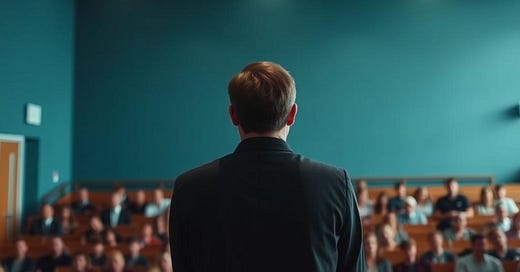Only ⅓ of Harvard Faculty Believe Academic Freedom is “Very” or “Completely” Secure, New FIRE Report Finds
Contributed by Caleb A. Chung
A new report from the Foundation for Individual Rights and Expression (FIRE) finds there is a widespread academic culture of “rampant self-censorship, worry, and fear, particularly among faculty in the political minority.” The report, which was released this morning, presented results from a survey of over 6,000 faculty members at 55 major universities, including Harvard. According to the report, the free speech problem is “worse than many realize.”
The fragile state of free speech on college campuses, particularly at elite institutions, has already enjoyed substantial attention. For two years running, FIRE has ranked Harvard as the worst college in the country for free speech, and Harvard University’s Open Inquiry and Constructive Dialogue Working Group found that 45% of students are reluctant to speak on controversial topics in the classroom. What is surprising about FIRE’s new research, however, is the extent to which Harvard’s faculty are also affected by this crisis.
Nearly 60% of surveyed Harvard faculty report at least occasionally feeling that they could not express their opinion for fear of how others would respond. While Harvard’s leadership has frequently affirmed its commitment to free speech, it seems many faculty members find these statements hollow: 39% claim that it is unclear whether the administration protects free speech on campus. Indeed, just this summer, Dean of Social Science Lawrence D. Bobo released an op-ed advocating for “sanctionable limits” on faculty speech. Only 32% of respondents believe that academic freedom at Harvard is “very” or “completely” secure, and a remarkable 10% have been disciplined or threatened with discipline for their research or speech.
Naturally, threats to free speech disproportionately impact conservatives, who are in the political minority. At a national level, FIRE found that conservative faculty members are three times more likely than their liberal counterparts to hide their political beliefs for fear of losing their jobs, and only 20% of respondents nationwide said a conservative would fit well with their department.
Yet, only 6% of survey respondents from Harvard self-identified as conservatives, meaning it was a predominantly liberal sample that nevertheless shared these concerns about free speech on our campus. Professors of all ideologies are worried about their beliefs being weaponized against them. This suggests that the problem is not just a lack of viewpoint diversity—although the perception of ideological uniformity certainly contributes to the problem—but a broader suppression of any socially unpopular opinions, either through formal disciplinary action or informal cancellation.
It is no surprise that free speech is laid by the wayside when universities become platforms for cultural and political activism. Professors are nominally hired to engage in academic inquiry, an endeavor that requires thinking critically, yet they are afraid of being punished for political or social non-conformity. To its credit, Harvard has already taken two important steps to de-politicize the university: the adoption of institutional neutrality (supported by 72% of surveyed Harvard faculty) and the elimination of mandatory diversity statements in hiring. But according to this report, more work must be done.
For years, conservative students have been worried about freedom of speech at Harvard. Now, it seems liberal faculty members are sharing the same concerns.
View the full report here.





Read the excellent, albeit scary and depressing, article in today’s WSJ from a UCR professor and his experience in DEI hell.
If the FIRE report is accurate, i.e., a majority hold opinion their academic freedom is compromised, the professors have no one to blame but themselves. They’ve allowed themselves to be locked in a prisoner’s dilemma and stay silent.
The answer is simple. Dismantle the bureaucracy and set a maximum ratio of 10:1 of instructors to administrators (Stanford is less than 1:1). When Elon and Vivek are done at the Fed, they need to hire out their DOGE services to academia. Problem solved.
In the Commonwealth OF MASSACHUSETTS, Harvard alone is granted CONSTITUTIONAL rights to ACADEMIC FREEDOM. Should not that be actionable in law?